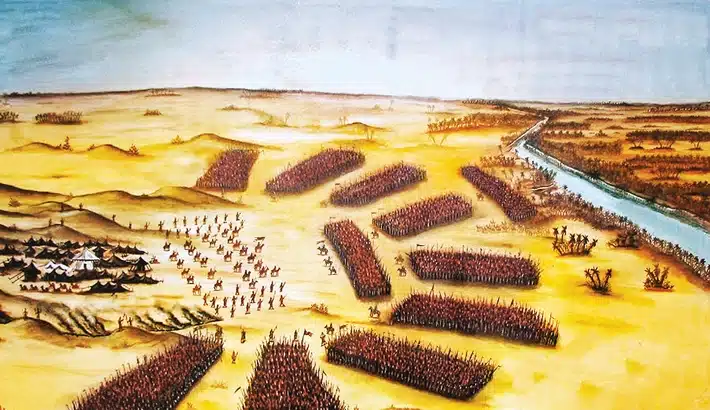Millions of Shia Muslims from all around the world are currently in Karbala in Iraq for the holiday Arbaeen (40 in English), which commemorates 40 days of the war of Karbala, the war that created the split in Islam, and the emergence of the two sects: Sunni and Shia.
The split began with the passing of the fourth Caliph, Ali Bin Abi Taleb. Ali’s eldest son Hassan attempted to succeed his father as the fifth Caliph. This notion was opposed by his challenger for the role, Muawiyah Bin Abi Sufian, who declared that the role of Caliph has been selected by the wise and elders of the Muslim tribes, and not by birthright succession In order not to create a split, Hassan did not pursue his own ambition and withdrew his nomination.
Upon his death, Muawiyah’s son Yazid attempted to declare himself Caliph and succeed his father. To ensure his reign, he demanded allegiance from the late Hassan’s younger son Hussein and his followers who remained loyal to the house of Ali. Hussein refused Yazid’s demands and challenged Yazid for the Caliph, particularly since Hussien’s brother gave up the Caliph role because of the claim that the role must not be passed by birth, and despite this claim by Muawiyah, his son is attempting to obtain the Caliph with the exact method his father initially opposed.
Hussien’s supporters and followers were a small group that resided primarily in areas of Iraq, where Hussien resided. Since his reign, Ali placed great emphasis on his and his family’s unique position in Islam, and as a higher entity than others due to their heritage. Ali was the prophet’s cousin, and he was also his brother in breastfeeding. (the prophet’s mother died shortly after birth and Ali’s mother breasted both as they were at similar ages). Moreover, Ali also married the prophet’s daughter Aysha, therefore, his children were also the prophet’s grandchildren. Thus, Ali’s supporters, and Hussien’s supporters, in turn, believed that the Ali family is the one that must continue to lead the Muslim nation, and they forced Hussien to battle against Yazid forces, which occurred in the area known today as Karbala, Iraq.
The small army of Hussien’s supporters was crushed by the might of Yazid’s army, which was composed of the Caliphate’s army. Yazid declared Hussien and his followers as traitors to the Muslim nation for their opposition to the Caliph, and at the end of the battle, the prophet’s own grandson, Hussein, was killed along with his followers. The remaining of Hussein’s followers, along with his sister Zeinab, detached from the Muslim nation that murdered their leader and thus established the Shia sect in Islam, whilst the continued path of the Caliph and the Muslim nation became known as Sunni.
Forty days is the traditional period of mourning for the dead in many Muslim traditions. Therefore, 40 days after Ashura, Shias commemorate Arbaeen, forty days to the battle and to the death of Hussien, and they mourn the suffering of Hussien at the hands of what they perceive as the unjust Sunnis who have skewed from the path of Islam.



















